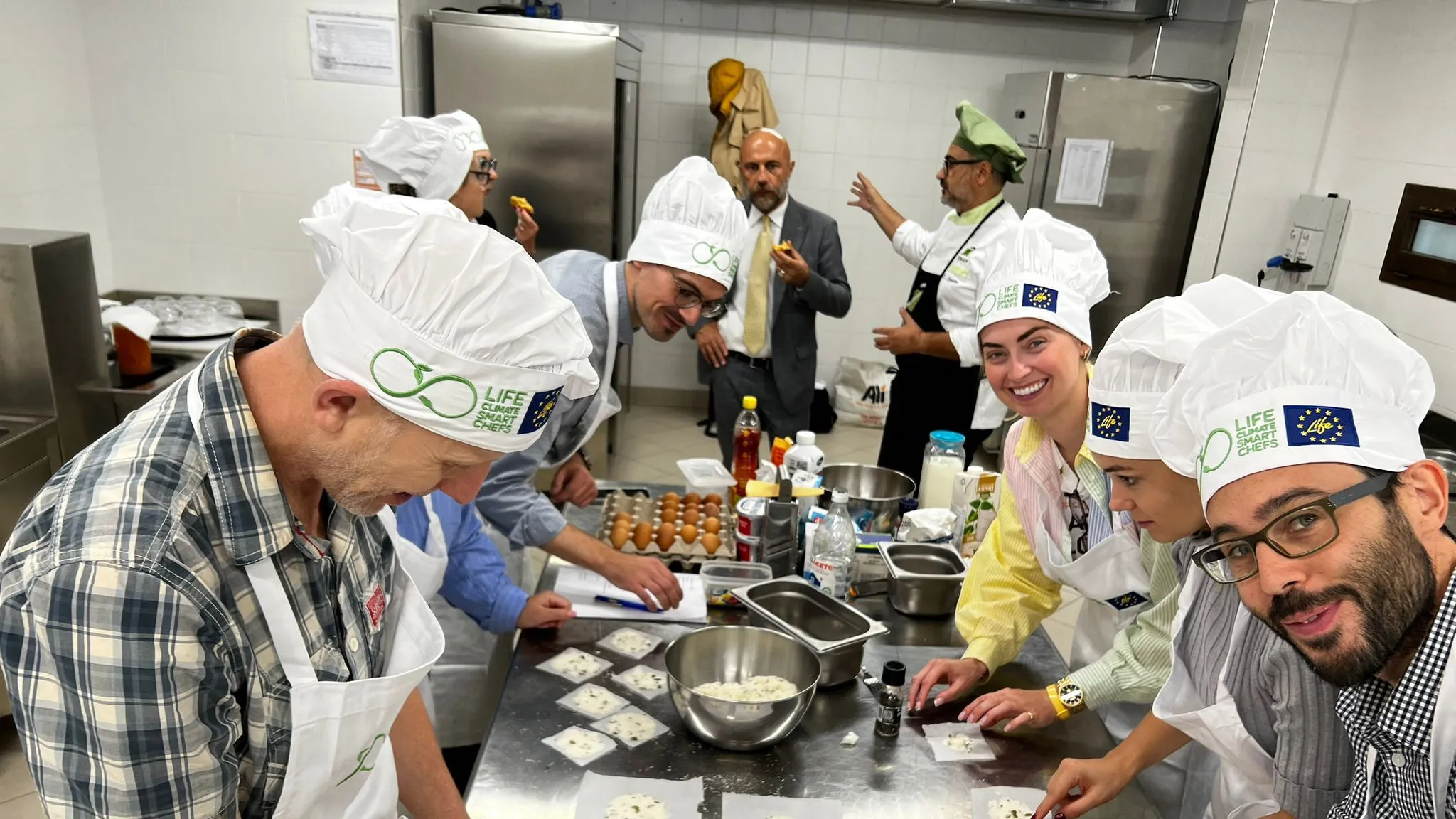Food & Climate
The chefs of European “Climate Smart Chefs” project managed to reduce the carbon and water footprint of their cooking recipes by around 30%.
Life Climate Smart Chefs is a European project receiving funding from the LIFE Programme of the European Union.
It aims to contribute to the development and implementation of the EU Climate Policy and the Farm to Fork (F2F) Strategy by actively involving European chefs as promoters of low emission, nutritious and affordable diets, and to promote a mainstream debate on food as a key factor for climate change mitigation, according the website of the project that “Food & Climate” platform has seen.
The food system is currently a major contributor to climate change, accounting for 31% of total greenhouse gas emissions in the EU. It also drives biodiversity loss, excessive water use and is a major source of pollution from fertilisers and pesticides.
Reducing the environmental impact of food is a key challenge facing governments and companies, while still ensuring people get the nutrition they need.
Educating chefs
‘Chefs are key actors in this process [to reduce the environmental impact of food],’ said Alessandra Varotto, communications manager for the Barilla Foundation, which is coordinating the Climate Smart Chefs project, according European Commission website today.
‘For this reason, over the past three years the Climate Smart Chefs project has been at the forefront of educating chefs across Europe focusing on the fundamental relationship among food, health and the environment.’

The European Climate Smart Chefs project has provided 164 chefs from all 27 EU countries with training and resources to transform their recipes and create menus in more sustainable ways. The chefs who took part were able to reduce the carbon and water footprint of their recipes by around 30%, according to Varotto.
Chefs who have completed the training were then also able to enter a new award aimed at recognising those who have achieved significant improvements in sustainability in their kitchens.
The award has two categories – Best Sustainable Restaurant and Best Sustainable Recipe. The winners are due to be announced in December 2024 at a final conference for the project, which is being held in Milan, Italy.
Some of the chefs are also taking part in the Zero Waste, More Taste campaign, contributing to a new cookbook aimed at reducing food waste by using scraps to create tasty dishes.
The project partners – from Italy, Ireland and Finland – have also produced a digital menu management tool that incorporates carbon and water footprint data gathered by an earlier project, Su-Eatable LIFE. This software, called Foodprint, allows chefs to see the environmental impact of their recipes as a traffic light system, and gives them options to make adjustments so the food is more sustainable. Surveys of chefs and research conducted for the project also led to a series of recommendations and best practices for restaurants hoping to improve their sustainability.
A long-term roadmap, called Vision 2030, was created to help the hospitality industry work with governments to deliver the policies needed to transform the food system.
Climate Smart Chefs goals
The Life Climate Smart Chefs project aims to contribute to the development and implementation of the EU Climate Policy and the Farm to Fork (F2F) Strategy, which the European Commission unveiled in 2020, yet over half of its promises are still unmet, an analysis by Euronews has found in February.
Farm to Fork is supposedly a flagship element of the EU’s environmentally-focused green deal, but there’s been a recent high-profile backlash by protesting farmers.
Of the 31 actions promised as part of Farm to Fork, 15 have not got off the ground – and one, a contentious proposal on pesticides, was even withdrawn by Commission President Ursula von der Leyen.
The strategy aimed to make European food more sustainable, by transforming production, distribution, and consumption. In reality, only the elements relating to agriculture – the “farm” side – have been unambiguously advanced.
An original action plan of 27 initiatives proposed in May 2020 and due before the end of the current commission’s mandate has since ballooned to 31 as components developed and split.
While a timeline published by the commission ticks almost all initiatives as complete, in many cases the EU executive has done little more than work on an impact assessment – an analytical document setting out the pros and cons of different policy options.

More than two-thirds of the strategy will likely remain unfinished before a new commission takes office in November, with legislation still under discussion by lawmakers.

